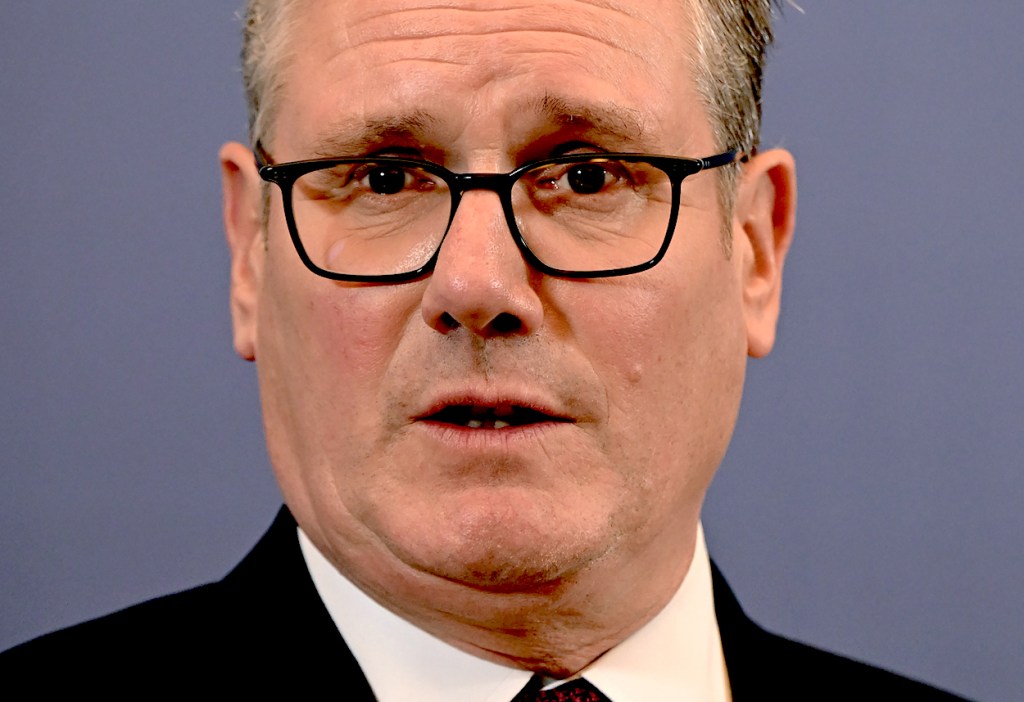In the months before the general election, the Labour party had an internal debate about starting a ‘national conversation’ on assisted dying. Keir Starmer had promised Esther Rantzen, the veteran broadcaster with terminal cancer, that if elected he would hold a vote on it. Wes Streeting, in the health brief, argued that it might be the time to start a wider debate with the country on the thorny issue. However, he faced pushback from those in the shadow cabinet mindful of the fact there could be an election within months. Talking about death wasn’t exactly the feel-good change factor they were aiming for. ‘We didn’t want to become the death party,’ recalls a colleague.
‘It could basically blow up the family courts. Is that such a good idea?’
Now, some in the party are wishing that the conversation had got under way sooner. Starmer has made good on his pledge to Rantzen: a vote to legalise assisted dying is due this month. But it’s not clear whether his government or party are convinced. ‘The politics has been off,’ says one Labour MP first elected this year. Backbencher Kim Leadbeater is using her private members’ bill to try to change the law so terminally ill patients with less than six months to live can opt for assisted dying. Technically it is a free vote – but given Starmer’s well-established position (he was one of the 118 MPs to back the 2015 effort for legalisation), the party believes it knows what the leadership would like to happen. ‘There will be soft whipping,’ predicts a cabinet minister.
There had been a sense that the bill should pass comfortably. The combination of Starmer’s support, the large Labour majority and an influx of new, modern MPs means this parliament looks very different to the one that rejected the idea in 2015. Yet the tension within Labour between social liberalism and a more blue Labour approach remains strong. There are also MPs of faith, such as the Christian backbenchers Rachael Maskell and Stephen Timms, who oppose the measure. And then there are the MPs upset by the way in which Starmer has gone about it.
Starmer is not the first prime minister to try to bring in a significant change early on outside of government legislation. Labour’s ban on smoking indoors was realised through a conscience vote – as was the latest Tory clampdown on the habit. But here, the concern is that a topic as thorny and knotty as this requires more careful thought than a private members’ bill and five-hour debate can offer.
The decision to give a matter of life and death such short shrift in the Commons chamber has brought about the unlikely alliance of Diane Abbott, Ed Davey and Kemi Badenoch, who have all raised concerns. One influential Labour MP suggests the whips could delay the vote on the assisted dying bill. One criticism is that a decision that could lead to thousands of people ending their lives voluntarily has been given just five hours of debate time. Whips could intervene and choose to allocate government time to it.
Now not even Starmer seems sure whether he will back it. The Prime Minister has gone from saying publicly ‘I’m personally in favour of changing the law’ to refusing to offer specifics this week to the travelling lobby as he headed to a climate summit in Azerbaijan. ‘Either he was always being bullied by Esther Rantzen or he’s lost his nerve,’ says one MP. He has reason to pause for thought: in an ominous sign for the viability of the bill, both the Health Secretary and Justice Secretary, the two ministers who would be responsible for the implementation of assisted dying in the United Kingdom, have said they will not vote for it.
Shabana Mahmood’s views are long established and based on her faith as a Muslim. As she first told The Spectator last year: ‘I feel that once you cross that line, you’ve crossed it forever.’ Streeting has been torn on the issue, deciding a few weeks ago that he could not in good conscience back the bill. He has warned that ill patients could feel ‘guilt-tripped’ into ending their own lives and questioned the ability of the state (a regular complaint from Labour ministers these days) to support assisted dying. Those in favour of the bill are frustrated Streeting has been so vocal in his criticism given the Cabinet were told not to engage in a public debate. But as one government aide puts it: ‘It’s impractical. Of course ministers are going to be asked about it on media.’ Angela Rayner, the deputy prime minister, is the latest member of the Cabinet reported to be minded to vote against the bill.
Leadbeater published the bill this week, setting out its safeguards. Yet many questions remain unanswered. A member of the public who pressured an individual into assisted suicide could face a jail sentence of 14 years – but a doctor under pressure at work and short on time can suggest it to a vulnerable patient. Might that not lead to some patients feeling under pressure to end their lives?
The High Court must approve all applications. But there are currently 18 High Court judges in the family division, who are already overloaded with cases. There are concerns in the Ministry of Justice – which is facing spending cuts following Rachel Reeves’s Budget – that the implementation of assisted dying will only add to a court backlog. Applications for assisted suicide will, by their very nature, be treated as emergency requests and skip the queue – meaning there will be consequences elsewhere. As one government source puts it: ‘It could basically blow up the family courts. Is that such a good idea?’

All this adds to an anxiety among MPs that assisted dying is not so much a necessary social change as a more a complex issue with no easy answers. ‘It’s hardly gay marriage – not many MPs want to be associated with this,’ says a party figure.
Why rush something so delicate? Given Starmer so far seems to be struggling with the basics of governing, questions are being to asked as to whether this is another instance of the new Prime Minister biting off more than he can chew.
If the first Commons vote in nearly a decade on the issue fails, the bill’s supporters would put the defeat down to poor planning. It would also suggest that Starmer needs to get to know his party better.
Watch more on SpectatorTV:








Comments